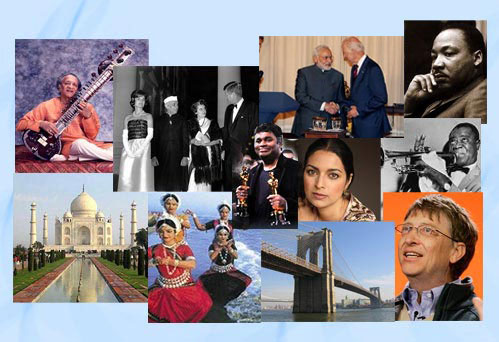Mark Templer’s tributes to Vivekanand
Feb. 14th, 2012 – Panel Discussion
Multipurpose hall, IIC, New Delhi
Distinguished Panellists and members of the audience, main bohut abhari houn ki main aapke saath aaj upasthit houn, aur ham sab milkar ek mahan vyekti ka smaran karenge. (I am grateful to be present among you today, and that we can give our attention to a great man).
- I would like to divide my brief remarks tonight into four points beginning with "H": heart, hope, humility, and harmony.
- HEART. Vivekenanda is relevant for people of all time periods and places, because like other great souls, unhone apne shabdonko karya roop diya (he converted his words into action).
- I love his quotation: "Those who live for others really live and those who live only for themselves are more dead than alive." Or, "In a day when you do not come across any problems, you can be sure that you are traveling in a wrong path." His words and life were the same, because both flowed from his heart. He was a man of courageous heart, a man of action, someone willing to take risks to make a difference—like my esteemed fellow panelists and so many of you here tonight.
- HOPE. Vivekanand had many great achievements, one of which was to awaken young people’s pride in themselves and in their country. Unhone rashtriya swabiman ko jagrit kiya. (He awakened national pride). Unhone noujavanonko prerna diya ki main yogya houn, mujhe shamta hai, main sabh kuch kar sakta houn, mere zindagee ke liye mera had sirph mere sapne hain. Is prakar ke soch noujavano ke liye zaruri hain har desh main aur har yug main. (He gave young people the inspiration that "I am worthy, I am capable, I can do anything, in my life the limit is only my dreams". This kind of thinking for young people is necessary in all countries during all periods of time.). He gave people hope.
- India has always had many achievements to be very proud about. Today the world increasingly recognizes this, as India takes its rightful place on the world stage. As President Obama observed during his 2010 visit here, "India is not simply emerging: India has already emerged." Vivekananda exhibited this kind of noble, quiet confidence when he visited the U.S. over a century ago. When he spoke at the Parliament of Religions in 1893 he was hailed in the U.S. press as the Parliament’s greatest figure.
- HUMILITY. Vivekanand had the humility to learn from others like Swami Ramakrishna Paramahansa. This example is very much relevant today for us as individuals and as nations--our countries have so much to learn from one another, and it is great the way the Indo-American Friendship Association promotes and encourages these bonds and exchanges.
- Vivekanand had the dynamism, vision, and compassion to start the Ramakrishna Mission. It takes humility to start something new, to take a chance—because when you do something new, you might fail. Again, this is embodied in both of our cultures today—America and India are renowned for their creativity and entrepreneurship, from jugaad in India to innovation in the United States.
- Vivekanand, like Paramhansa Yogananda, spent time in the United States, as other speakers have noted. He preached tolerance and understanding of other cultures and religions, which takes humility. He also practiced it by traveling widely in India and venturing far away to America, England, France, and other countries.
- HARMONY. Today the world has been brought closer together than ever before by communication and transportation technologies. In this kind of world, the sort of tolerance, harmony and respect that Vivekananda embodied and taught is not only relevant, but necessary, so that we can move forward economically and socially with peace and mutual respect.
- Vivekanand taught about sahishnuta (harmony)—unhone sahisnuta par zor diya. This principle is so relevant today. In our relationships—in families, with neighbors, and internationally—we should strive as much as possible to focus on what we have in common, rather than stressing our differences. Vivekanand’s thoughts are certainly relevant to the U.S.-India partnership, where we have so much common ground, but also in so many other situations as well.
- In conclusion, as my esteemed panelists have also shared, Vivekananda was a man of heart—his teachings and life flowed from his heart and were consistent; he was a man of hope—he gave hope to many, especially the young; he was a man of humility, serving others and trying new things; and he was a man of harmony, preaching and practicing respect and tolerance. Shukriya and Dhanyavad.
Mark Templer is Science & Technology Officer at the US Embassy, N.Delhi
|



